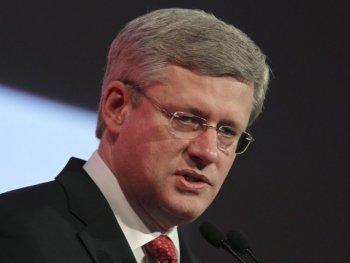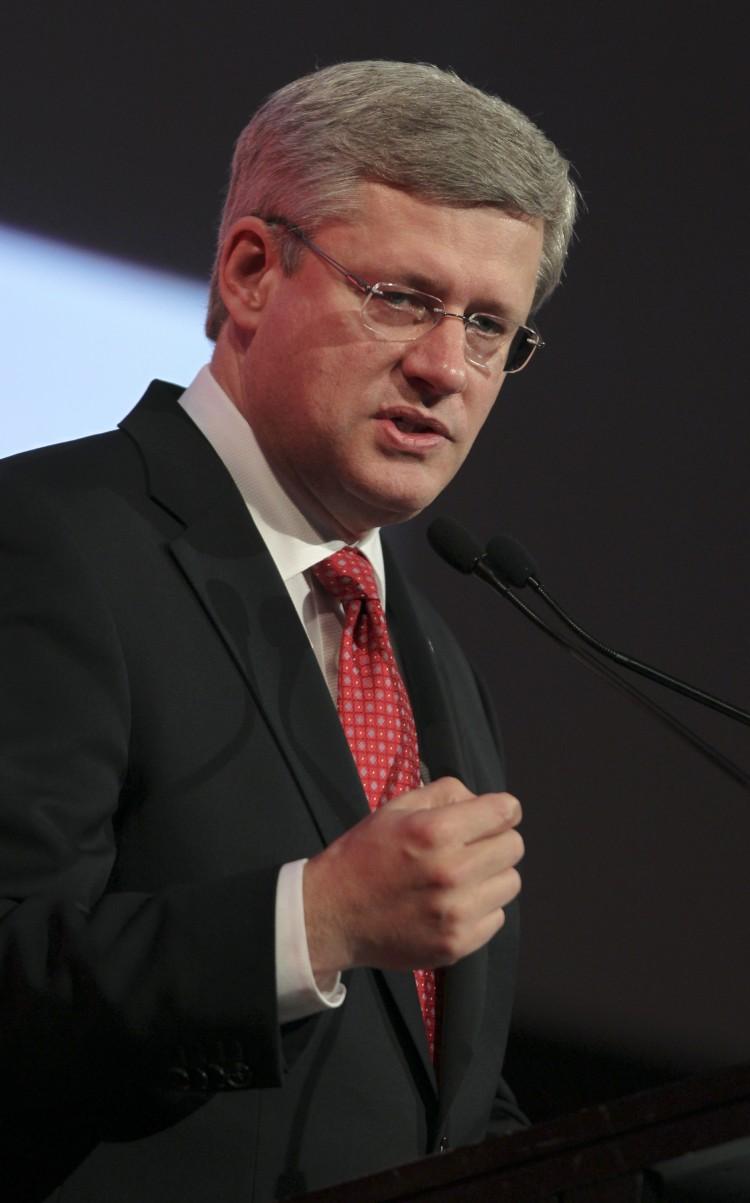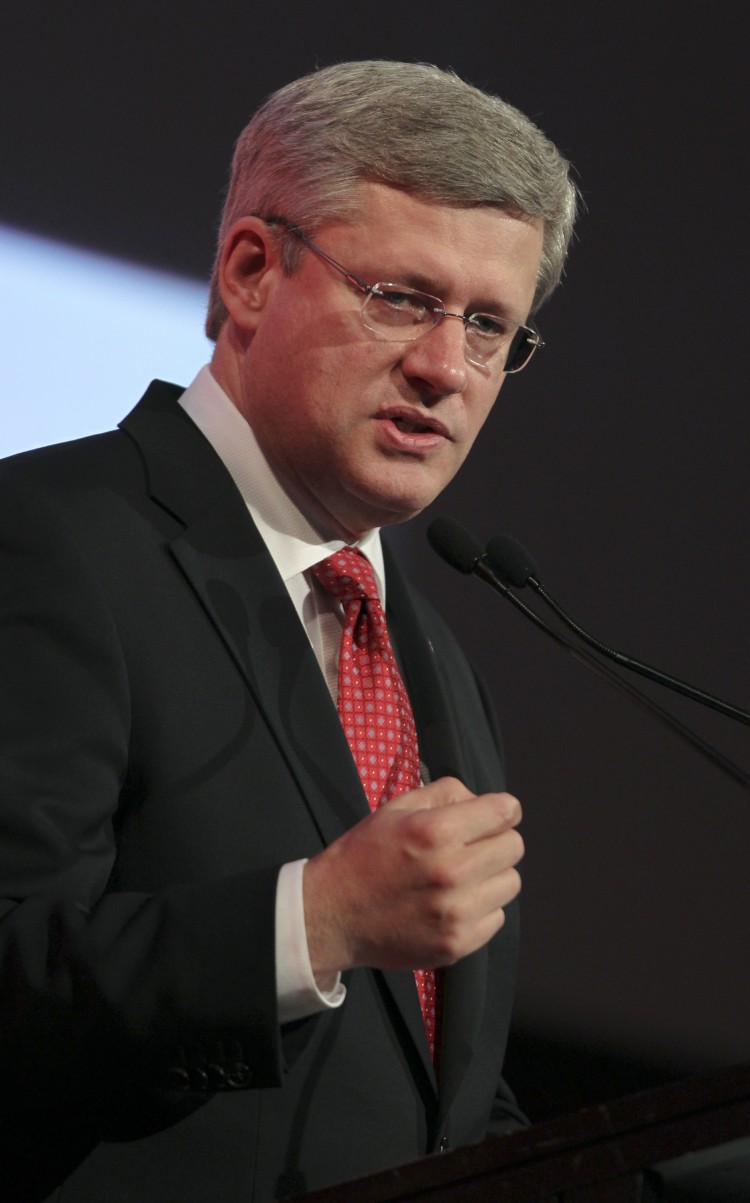Canadian PM Addresses Commonwealth Business Forum
Prime Minister Stephen Harper addressed global business and government leaders at the Commonwealth Business Forum in Perth, Australia, on Oct. 27.

Prime Minister Stephen Harper delivers the keynote address to close the Commonwealth Business Forum in Perth on Oct. 27 ahead of the Commonwealth Heads of Governments Meeting (CHOGM) this week. The CHOGM talks, to be opened by Britain's Queen Elizabeth II on Oct. 28, will debate whether the body should adopt a charter of common values and create the office of commissioner for democracy, rule of law, and human rights. Tony Ashby/AFP/Getty Images
|Updated:






